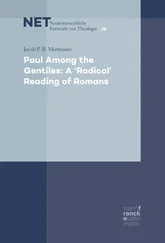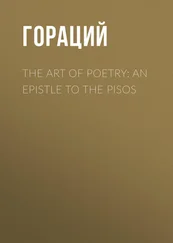Charles Gore - St. Paul's Epistle to the Romans - A Practical Exposition. Vol. II
Здесь есть возможность читать онлайн «Charles Gore - St. Paul's Epistle to the Romans - A Practical Exposition. Vol. II» — ознакомительный отрывок электронной книги совершенно бесплатно, а после прочтения отрывка купить полную версию. В некоторых случаях можно слушать аудио, скачать через торрент в формате fb2 и присутствует краткое содержание. Издательство: Иностранный паблик, Жанр: foreign_religion, foreign_antique, foreign_prose, на английском языке. Описание произведения, (предисловие) а так же отзывы посетителей доступны на портале библиотеки ЛибКат.
- Название:St. Paul's Epistle to the Romans: A Practical Exposition. Vol. II
- Автор:
- Издательство:Иностранный паблик
- Жанр:
- Год:неизвестен
- ISBN:нет данных
- Рейтинг книги:5 / 5. Голосов: 1
-
Избранное:Добавить в избранное
- Отзывы:
-
Ваша оценка:
- 100
- 1
- 2
- 3
- 4
- 5
St. Paul's Epistle to the Romans: A Practical Exposition. Vol. II: краткое содержание, описание и аннотация
Предлагаем к чтению аннотацию, описание, краткое содержание или предисловие (зависит от того, что написал сам автор книги «St. Paul's Epistle to the Romans: A Practical Exposition. Vol. II»). Если вы не нашли необходимую информацию о книге — напишите в комментариях, мы постараемся отыскать её.
St. Paul's Epistle to the Romans: A Practical Exposition. Vol. II — читать онлайн ознакомительный отрывок
Ниже представлен текст книги, разбитый по страницам. Система сохранения места последней прочитанной страницы, позволяет с удобством читать онлайн бесплатно книгу «St. Paul's Epistle to the Romans: A Practical Exposition. Vol. II», без необходимости каждый раз заново искать на чём Вы остановились. Поставьте закладку, и сможете в любой момент перейти на страницу, на которой закончили чтение.
Интервал:
Закладка:
2. As we read St. Paul's enumeration of the glories of Israel, it is of course obvious for us to pursue the line of thought taught us elsewhere by St. Paul, and in the Epistle to the Hebrews; and to recognize how each element of the 'glory,' which belonged once to the Jewish 'ministration of condemnation,' belongs in deeper and fuller measure to the Christian 'ministration of the Spirit 13 13 2 Cor. iii. 8.
.' Ours is the vocation of the chosen people; ours is the sonship to God; and the perpetual presence; and the security of divine covenant; ours is the divine law, and with it, what is much better, the Spirit for its accomplishment; ours is the corporate worship in spirit and in truth, the Church's eucharist; for us, too, are promises which the realization of those of the first covenant has made 'more sure'; ours finally is the communion of the saints from Abraham onward into the body of Christ. And in proportion therefore to the greatness of our privileges, even as compared with those of the older covenant, is the greatness of our responsibility; 'For I would not, brethren, have you ignorant 14 14 See 1 Cor. x. 1-13.
,' St. Paul would say; he would not have us fail to profit by the warnings of old days. And another voice warns us 'Of how much sorer punishment shall he be thought worthy, who hath trodden under foot the Son of God, and hath counted the blood of the covenant, wherewith he was sanctified, an unholy thing, and hath done despite unto the Spirit of grace 15 15 Heb. x. 29.
.'
3. There has been amongst critics, since Erasmus, much controversy over the clause, 'who is over all, God blessed for ever.' There is no doubt that it is translated most naturally, and most agreeably to the balance and movement of the sentence, if we attribute it to Christ, as above. But many critics, including some who were orthodox, have stumbled at the idea of St. Paul speaking of Christ straight out as 'over all, God blessed for ever.' Generally no doubt 'God' is used by St. Paul as a proper name of the Father. But Christ is continually recognized as possessing strictly divine attributes, and exercising strictly divine functions; and in all St. Paul's epistles, beginning with his earliest to the Thessalonians, He is God's Son, His own or proper Son 16 16 1 Thess. i. 10; Rom. viii. 3.
. His blood, as shed for our ransoming, is God's own blood, or (possibly) the blood of one who is 'His own' 17 17 Acts xx. 28.
. He subsisted eternally in the form, or essential attributes, of God, and in possession of equality with Him; and He possesses now, as glorified in humanity, the divine name of universal sovereignty, the object of universal worship 18 18 Phil. ii. 6-11.
. Therefore He is in the strictest sense divine; and whatever or, I should say, whoever is essentially divine and proper to the being of God, can rightly be called God. For, indeed, there is nothing in the strict sense divine but God Himself. It was then merely a question of time when Christians would become sufficiently familiar with the new revelation of the threefold name to apply the word God to the Son and the Spirit as naturally as to the Father. And there is nothing really to surprise us in St. Paul here applying it to Christ 19 19 Without the article which makes it a proper name of the Father.
: nothing certainly to warrant us in doing violence to the sentence, in order to obviate the conclusion that he did so, by putting a full stop after 'flesh,' and then supposing an abrupt exclamation 'He who is over all is God blessed for ever 20 20 R. V. margin2. It does further violence to the Greek to translate as R. V. margin1, 'He who is God over all is (be) blessed for ever.' I have nothing to add on the matter to S. and H. in loc. , especially p. 236.
!'
Let it be recognized, then, that St. Paul here plainly speaks of Christ as 'over all,' i.e. in His glorified manhood, and also as 'God blessed for ever' – that is, as the one proper and eternal object of human praise; and that he speaks of Him again elsewhere 21 21 Tit. ii. 13. This is probably the right rendering.
, as 'our great God and Saviour.' It was only because He was essentially and eternally 'God' that He could, in our manhood and as the reward of His human obedience, be exalted to divine sovereignty and be 'over all.'
4. In the rest of the section St. Paul is arguing with a Jew, who makes the claim that because of the divine covenant God is bound to the Israelites, and to all Israelites for ever. 'We have Abraham to our father,' and that is enough 22 22 St. Matt. iii. 9.
. The higher prophetic spirit of the Old Testament had already realized that God's election of Israel was a challenge to her to prove herself worthy of an undeserved privilege 23 23 Great stress was laid by the prophets on the absence of any original merit or power in Israel, which caused the divine election; see Ezek. xvi, Deut. xxvi. 5.
, and that, though a faithful remnant would never fail, yet unfaithfulness in the bulk of the nation would bring destruction upon them and loss of God's favour 24 24 See especially Amos ix. 7-10: 'Are ye not as the children of the Ethiopians unto me, O children of Israel? saith the Lord. Have not I brought up Israel out of the land of Egypt, and the Philistines from Caphtor, and the Syrians from Kir? Behold, the eyes of the Lord God are upon the sinful kingdom, and I will destroy it from off the face of the earth; saving that I will not utterly destroy the house of Jacob, saith the Lord. For, lo, I will command, and I will sift the house of Israel among all the nations, like as corn is sifted in a sieve, yet shall not the least grain fall upon the earth. All the sinners of my people shall die by the sword, which say, The evil shall not overtake nor prevent us.'
. The prophetic spirit had realized also that God's servant Israel was not 'called' for his own selfish honour's sake, but was entrusted with a divine ministry to fulfil for all the nations of the earth 25 25 Gen. xii. 3; Isa. lxvi. 18; Zech. viii. 23, &c.
. It is to this higher sense of what Israel's position meant, and the perils it involved, that John the Baptist and our Lord Himself had sought to recall the Jews. They must not 'think to say within themselves, They had Abraham for their Father; for God was able of the stones to raise up children unto Abraham.' For 'many should come from the east and the west, and sit down with Abraham, and Isaac, and Jacob, in the kingdom of God, and the sons of the kingdom should be cast into the outer darkness 26 26 Matt. viii. 11, 12.
.' But it is evident that this higher meaning of the doctrine of election had been forgotten by contemporary Judaism, and they would not be recalled to it. They refused to contemplate the spiritual risk of missing their vocation, or the universal purpose for which it was given. They chose to think that Israel, i.e. the actual Israelites in bulk, must remain God's elect; that the Christ, when He came, must come to exalt their race and nation: that they were bound to inherit the blessings of the world to come: that the divine government of the world existed for their sakes 27 27 In Weber's Jüdische Theologie (Leipzig, 1897, formerly called System der Altsynagog. Palästin. Theol. or Die Lehre des Talmud ), pp. 51 ff, there are striking illustrations from the Talmud of this fixed tendency of thought among the Jews. Thus 'there exists no clearer proof of the Talmudic conviction of the absolutely holy character of Israel than that in all the places of Scripture in which Israel is reproved and has evil attributed to it, the expression, "the haters of Israel," is substituted for Israel.' 'We read: Isaiah was punished, because he called Israel a people of unclean lips,' &c. Cf. S. and H., p. 249, and my Ephesians , p. 261.
.
Интервал:
Закладка:
Похожие книги на «St. Paul's Epistle to the Romans: A Practical Exposition. Vol. II»
Представляем Вашему вниманию похожие книги на «St. Paul's Epistle to the Romans: A Practical Exposition. Vol. II» списком для выбора. Мы отобрали схожую по названию и смыслу литературу в надежде предоставить читателям больше вариантов отыскать новые, интересные, ещё непрочитанные произведения.
Обсуждение, отзывы о книге «St. Paul's Epistle to the Romans: A Practical Exposition. Vol. II» и просто собственные мнения читателей. Оставьте ваши комментарии, напишите, что Вы думаете о произведении, его смысле или главных героях. Укажите что конкретно понравилось, а что нет, и почему Вы так считаете.












